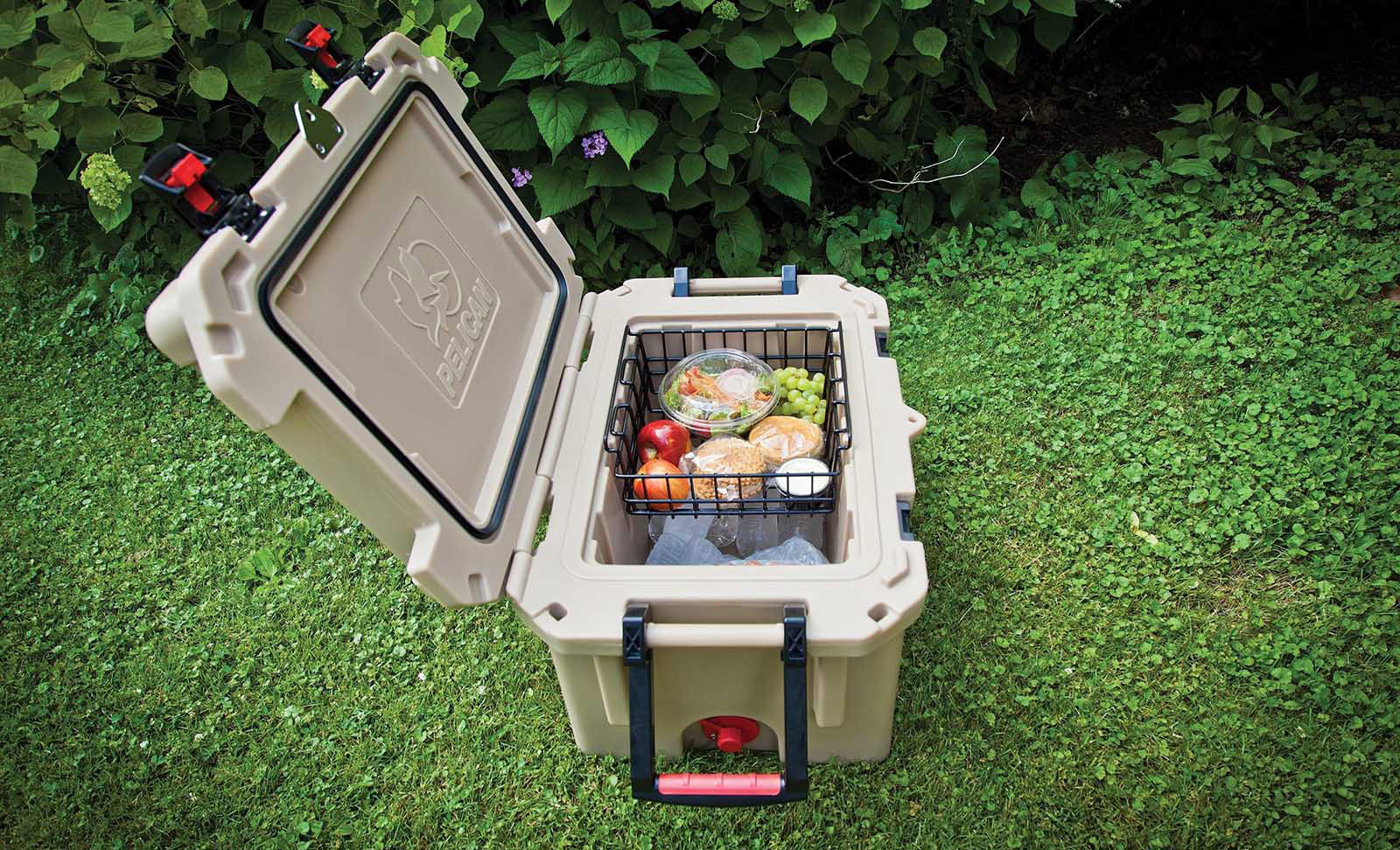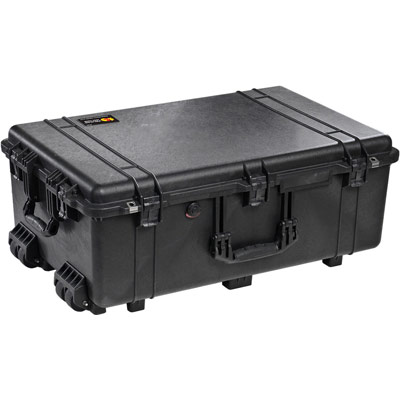18 Camping Hacks for Your Next Outing
June 4, 2020

Part of being a skilled camper is knowing how to handle the unexpected without breaking a sweat. A sudden downpour or cold spell? No biggie. Dead batteries or a burned-out bulb in your lantern? Nothing you can’t handle. A missing tent pole? Not worth a second of worry. Indeed, seasoned campers possess the unique ability to shake off hiccups with grace and quickly maneuver to find solutions using the most basic tools and supplies.
Yet what many of the diehard survivalists don’t tell you is that they all rely on a few simple hacks to stay safe and comfortable in the outdoors. These are the tips and tricks you won’t learn at camp or read in survival manuals. They’re the camper-to-camper hacks passed along by the outdoorsmen and women who have been at it for decades. And we’re here to share a few of them with you, so you camp like a pro even if it’s your first outing ever.
Preparation: Setting Yourself Up for Success in the Wilderness

Prepping for a camping trip is about brushing up on your survival skills and having a plan in place in case something goes wrong.
No matter if you go by the Scout Motto or the principles of Leave No Trace, the first rule of outdoor survival is the same: plan ahead, be prepared. And prepping for a camping trip isn’t just about checking the weather and packing the right stuff (though these are crucial to a safe outing, too). It’s also about brushing up on your survival skills and having a plan in place in case something goes wrong.
- 1. Use Dry Ice in the Cooler. Learning how to pack a cooler is the camping hack of all camping hacks. There are tons of simple ways you can seriously enhance your cooler strategy without a huge investment. One of our favorites is to use dry ice in place of regular ice. This stuff is long-lasting and extra dry, so it will keep your food and beverages in good condition, even during week-long outings.
- 2. Learn to Identify Plants. A good field guide can be a literal lifesaver when you’re stuck in a survival scenario. Knowing which plants and fungi are poisonous and which are edible can help you thrive when there’s no other option, but this field is worth learning just to impress your fellow campers. Learn your plants and then send the kids on treasure hunts and fun foraging adventures. It’ll entertain them for hours!
- 3. Know the Rules of Basic Shelter. This hack is more of a rule. Don’t enter any wilderness environment without knowing how to build a basic shelter. This comes in handy not only in survival scenarios but also with common mishaps, like when you forget to pack your tent patch kit.
- 4. Learn How to Tie a Few Knots. Campers, take a page from the sailor’s handbook and learn your knots! You’ll be surprised to find how often a well-tied rope comes in handy at the campground. Learning how to tie simple knots will help you set up camp and pack your gear easier and faster. You know what they say: it’s better to know a knot and not need it than to need a knot and not know it.

- 5. Prep Some Food Before You Go. The best camping meals are the ones that are simple and require minimal prep work because most of us want to get away with packing only the basics — a pan or two, a sharp knife, a cutting board and a grill. Preparing some things before you head out can prevent you from having to bring extra items. Here are some of our quick camping food prep hacks to know:
- Cut vegetables ahead of time. If you’re grilling or sautéing, choose hardy varieties that don’t brown, such as carrots, broccoli or brussels sprouts.
- Marinate meat. But, make sure you eat it within a day or so. Pack marinating meat in airtight, plastic bags on the top rack of your cooler. Just remember to use it within 24 hours to avoid an unpleasant taste or texture.
- Get friendly with foil-packed meals. If you’re grilling, combine meat or seafood with some veggies and wrap everything in foil to toss on the grill. Potatoes, corn and peppers roast beautifully and easily.
- Pre-make sauces or stick to jarred varieties. All the chopping, simmering and reducing of sauces require the extra time and patience you probably don’t have when you’re camping. Stick to pre-made and jarred sauces.
- Make and take sides. Who says chips are the only side option for your camping meals? Pre-make pasta salad, potato salad and coleslaw and store in an airtight container in your cooler.
Packing: You’re Only as Good As Your Best Camping Supplies

When you’re camping in a remote area, all you’ve got is fresh air and whatever food you’ve packed in your gear cases.
- 6. A Saw is as Useful as an Ax or Hatchet. When planning which tools to bring camping, the ax and hatchet are often at the top of the list. These tools are indispensable when splitting wood. But, a good tree saw will undoubtedly come in handy as well, especially in densely forested regions.
- 7. Don’t Forget Your Headlamp. Seriously, this is one of those new-school camp hacks that even the old guard (the lantern faction) has adopted with enthusiasm. A good-quality LED headlamp provides you with hands-free light, which is truly indispensable when you’re building a fire or setting up camp after sunset.
- 8. Pack Some Dryer Lint Fire Starters. You should never go camping in any environment if you don’t already know how to start a campfire. However, even the pyro pros out there know that having a backup fire-starter can save you a lot of stress and frustration. Dryer lint fire starter is highly flammable and made of a substance that’s lightweight, easily accessible and takes up virtually no space in your camping gear. It’s an obvious choice!
- 9. Pack in Waterproof Cases. As the purveyors of the world’s best watertight cases, we’re proponents of using rugged vessels. Campsites can be wet, dirty and hotspots for curious wildlife, so packing your stuff in airtight, watertight cases is a must. Choose cases with wheels if you’re heading deep into the woods and don’t chance it with expensive electronics or photography gear. Always keep your camera and lenses in a durable, protective camera case.
- 10. Pack Basic Backups. Why not create a “just in case” case for all your backups? It won’t hurt to have a few spare carabiners, ropes, bungee cords, backup tent poles, batteries, rubber bands, metal clips, safety pins, etc. Every camper’s “just in case” case grows with every outing, so pay attention to things you wind up needing and make a mental note to pack them for your next trip.
- 11. Bring a Tent Repair Kit. Packing a tent repair kit is the definition of a camping hack. Sure, you could use your sewing kit to stitch together rips or tears and try to finagle a patch from an old tarp. But why? You can pick up a pretty high-quality tent repair kit for a few bucks at the hardware store, and it could save you a whole lot of time and stress when you’re in the middle of the woods.
- 12. Extra Tarps are Essential. You’ll always be able to find a good use for a spare tarp. You may need a tarp to add ground cover beneath your tent, to serve as a makeshift tablecloth, to protect you from the harsh sun or to keep all your gear safe and dry in a downpour. Tarps also serve as excellent emergency shelters should you find yourself in a vulnerable situation.
Setting Up Camp: Creating a Home Away from Home

Now that you’ve learned the basics of survival and packed like a pro, you are ready to head out the door. Much of the hard work is over, but you still have to set up camp. For many dedicated outdoor enthusiasts, this is the proverbial “fun part.” Here’s how to set up camp so it’s as comfy and practical as your home.
- 13. String Glow Sticks on Your Dog’s Collar. Camping is the ultimate dog-friendly activity, and most pups love to be brought along. But keeping tabs on them can be tough in a wide-open space, especially after dark. Keep track of your furry friend by stringing some cheap glow sticks onto his collar. A flashing LED light or light-up collar will do the trick, too.
- 14. Keep Things in Place with Metal Clamps. Nothing compromises a campsite quite like a few strong gusts of wind. Bring some durable metal clamps to hold everything in place when the wind is blowing hard. Clamps are great for clipping the tablecloth to the picnic table and securing your trash and recyclable bags. You don’t want them to blow away because you’ll be running after rogue cans.
- 15. Use a Rolling Cooler. Your hard coolers tend to get packed to the brim, even for relatively short weekend camping trips. And jam-packed coolers can be heavy. It helps if you invest in a rolling cooler that’s easy to maneuver from trunk to site to picnic table to tent. When it rolls, you can wheel your cooler from spot to spot to serve as a makeshift table, too. Bonus points if it has built-in cup holders!
- 16. Put Foam Padding in Your Tent. Air mattresses never work right and we all know that even the nicest sleeping bags aren’t cushiony enough to keep you from tossing and turning on the hard ground all night. Don’t waste your dough on expensive camping pads. Those cheap snap-together foam tiles for playrooms and gym floors will make a great base. Alternately, you can buy cheap rolls of memory foam that compress easily to save space.
- 17. Pack Cheap Solar Lights. Those cheap stake solar lights you see all over the place are amazing for camping, especially if you’re headed somewhere with soft ground. You can simply stick them in the ground to create some nice pathway lighting or designate different areas of your site for various purposes.
- 18. Keep Warm with a Water Bottle. Heading out to camp when the weather’s a bit nippy? Make use of a water-filled plastic bottle to keep you warm in your tent at night. Fill a tight-fitting bottle with hot water and wrap it around a thin towel, rag or shirt. Tuck it into your sleeping bag to help keep your feet toasty!

Learn As You Go
All campers have their own way of doing things, and the best way to become an expert at anything is to get some practice. In time, you’ll have your camping routine down to a science. You’ll know exactly how to prepare for and execute the camping trip of a lifetime.
RELATED PRODUCTS

SIGN UP FOR EXCLUSIVE OFFERS
Sign up for our newsletter and get exclusive access to new product launches, special offers and much more.
RELATED BLOGS


















